Non-Surgical Alternative to Dental Implants
Tooth replacement solutions available in Singapore.

Alternatives to Dental Implants
Dental implants are the gold standard when it comes to tooth replacement. From our experience, dental implants offer patients with a whole array of benefits on top of just replacement teeth, unlike other tooth replacement solutions available, treatments involving dental implants are the only form of tooth replacement, that enables osseointegration to occur, which helps reduce bone loss when patients lose teeth.
However, dental implants not without their cons. As such, there exist alternatives to dental implants that patients can look to for their tooth replacement needs. In this article we’ll discuss the different dental implant alternative options available to patients in Singapore, to help you find the right solution to meet your needs and requirements.
Here, we’ll tell you all you need to know about non-surgical alternatives to dental implants for replacing teeth, including:
Conventional Dental Bridges
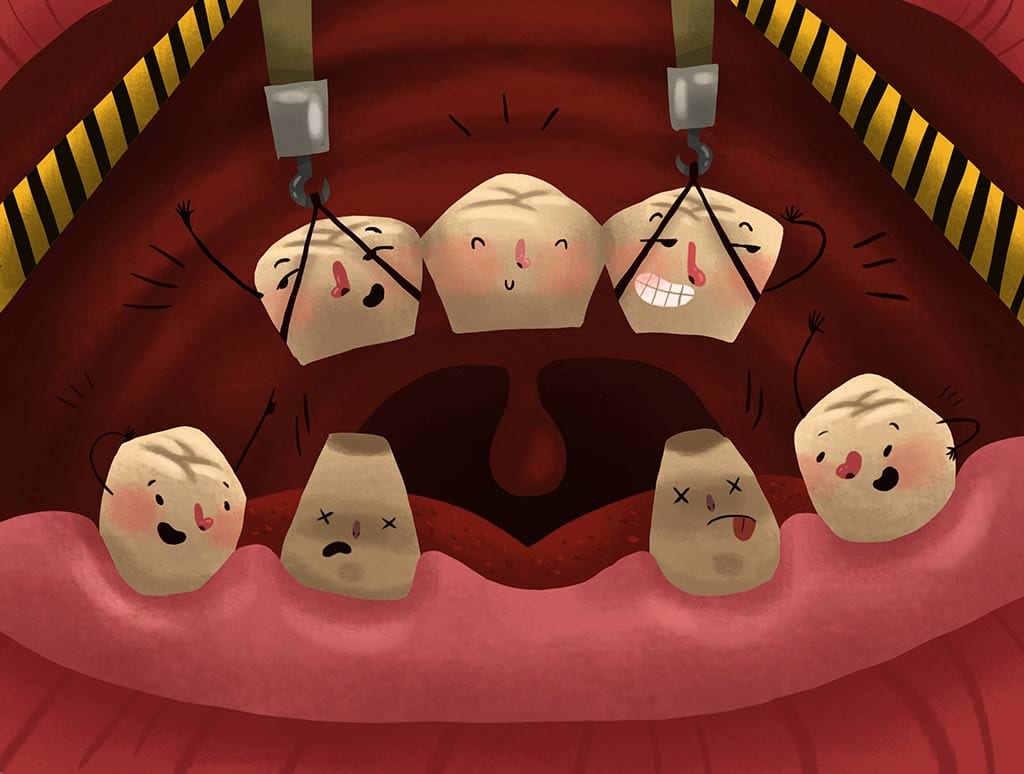
What is a dental bridge?
A dental bridge helps to ‘bridge’ the gap caused by missing teeth, it can be used to replace one or more missing teeth between two existing adjacent teeth (the anchor teeth keeping the bridge in place, also known as a abutments).
They’re typically made out of ceramic, metal or a mixture of the two materials. Dental brides are a great alternative to dental implants as they a lot more affordable and they provide patients with comparable functionality and aesthetics to dental implants. For a bridge to work, the abutment teeth have to be ‘shaved down’ so the dental bridge can be securely anchored in place.
Pros of Dental Bridges
Dental bridges have number of notable benefits over dental implants:
- Provides similar aesthetic and functional results to dental implants without the need for implant surgery. For patients who are not suitable for dental implants (eg, not enough bone) or cannot undergo dental implant surgery, dental bridges provides patients with a solution that can address their tooth replacement needs without the needs of any surgery.
- A great option when abutment teeth also require treatment, the dental bridge essentially ‘crowns’ the abutment teeth when the dental bridge is placed, which is highly beneficial if abutment teeth are in need of a root canal treatment for example, this essentially allows the dentist to kill two birds with one stone by using a dental bridge to cover the gap and crown the treated abutment teeth.
- Can replace up to four teeth. The maximum number of teeth a single dental bridge can replace is four (A six unit bridge). When compared to a single implant that can only replace a single tooth.
- Faster treatment time. Dental bridges generally only take two to three visits to the dentist over the course of one to two weeks to complete. Unlike dental implants which can take months before the entire treatment process is fully complete.
Cons of Dental Bridges
However, there are some main downsides to dental bridges when compared to dental implants:
- Shorter lifespan. They don’t last as long as dental implants as they’ve only got a lifespan of about 10-15 years on average. Unlike dental implants that could potentially last a lifetime with the right care and maintenance.
- Can only bridge gaps between adjacent teeth and cannot to be used for non-sequential missing teeth unless used in conjunction with dental implants.
- Does not prevent the bone loss over time unlike dental implants.
- Substantial amount of enamel must be shaved off from adjacent teeth to allow for proper placement of the dental bridge. This may increase the risk of tooth sensitivity in the future.
- Very difficult to keep clean. Food and dirt particles tend to collect under the pontic (part of the bridge that fills up the gap, sits on the gums and replaces missing teeth) which can be quite a hassle to remove. Patients will need to use a super floss or a floss threader in order to properly clean and maintain the bridge. If the dental bridge is not properly maintained, the lifespan of the bridge will significantly reduce due to the onset of oral health issues, such as gum disease.
If you’d like to learn more about the differences between dental implants and dental bridges, we have a separate article where we do an in-depth comparison between dental implants and dental bridges.
Full & Partial Dentures

What is a denture?
Dentures are generally classified as a removable prosthesis that act as a replacement for missing teeth and surrounding soft tissue. They usually come as a single piece of plastic, metal or a mixture of the two. Dentures allow patients to replace multiple teeth at once with a single device.
When compared to the dental implants and dental bridges, dentures come out on top as the most cost effective solution to replacing missing teeth.
The cost of single 3 unit dental bridge can start from $2,500, while a single dental implant can cost upwards of $3,000 per tooth.
A single denture will only cost patients an average of around $300 – $800 (depending on material of the denture) and allowing patients to replace multiple teeth with a single prosthetic appliance.
There are two main type of dentures that patients all over the world use to treat missing teeth.
Partial Dentures – Partial dentures are used in cases where patients are missing one or more teeth, but still have some natural teeth remaining. Partial dentures essentially allow patients to fill up the missing areas with removable acrylic tooth.
Full Dentures – Full dentures are used in cases where patients are edentulous, no longer have any existing teeth and need to replace all of their teeth. This solution provides patients with a prosthesis that mimics the aesthetics of a brand new set of teeth.
Pros of Dentures
Dentures have a number of notable benefits over dental implants:
- Cost a lot lesser than dental implants. As mentioned above the cost of a single denture is significantly lesser than that of dental implants.
- Can replace multiple teeth with a single prosthetic device. Generally, a single dental implant can only replace a single tooth, unlike a denture which can replace many teeth at once.
- Easy to repair and maintain. Dentures can be easily repaired and maintained simply by adding another tooth to the denture when you lose a tooth, or piecing a denture back together with new resin when it breaks or gets damaged. Dental implants and bridges on the other hand are difficult and time consuming to replace as they’re permanently placed in the patient’s mouth.
- Dental bridges are cemented on the abutment teeth, which allows the dental bridge to be firmly and securely placed. To remove dental bridges, your dentist will need to ‘break’ the bridge sectioning it into multiple pieces, this results in the bridge being permanently damaged and a new bridge will need to be made.
- Likewise, dental implants are generally made from three parts, the fixture, abutment and crown. These parts are either permanently cemented together or screwed in place. A damaged dental implant crown can usually be replaced with relative ease but if the implant fixture becomes loose, then the entire implant will need to be surgically removed, and a new implant placed in its place.
- Can replace tissue around missing teeth. Most patients will experience some form of bone loss during the later stages of their lives, for edentulous patients or patient suffering from some missing teeth, the process of bone loss is accelerated. This results in a collapsed gums and facial profile. With dentures, patients will be able ‘prop up’ collapsed tissue and create a fuller look.
Cons of Dentures
However, there are some main downsides to dentures when compared to dental implants and dental bridges:
- Quite uncomfortable. Most first time users of dentures do experience varying levels of discomfort, as patients will definietly notice the prosthesis in their mouth, unlike dental implants or bridges which look and feel almost as good as natural teeth.
- Effects speech and eating habits. First time users of dentures will notice a significant difference in their speech, it takes some time getting used to a piece of plastic on your mouth, and it will initially affect your speech and how you eat. This is temporary and disappears in some time.
- Dentures need to be removed and cleaned every night unlike dental implants or bridges which are permanently fixed in place.
- Dentures can loosen over time resulting in instability of the prosthesis in the mouth, which can cause increased levels of discomfort, soreness and even make some clacking noises.
- Significant reduction in the taste of food. Full dentures reduce a patients ability to taste food. This reduction varies from patient to patient but this change is usually slight and mostly encountered in most cases.
- Need to be periodically replaced every five to seven years. Teeth constantly shift over time, this is especially so in patient who have one or more missing teeth. Bone loss, shifting teeth and the loss of more teeth are some of the reasons why patients need to replace their dentures once every five to seven years to ensure optimal fit and function of their bite.
- Dentures can break quite easily. Patients should be careful when handling their dentures as they can be quite fragile, breaking when dropped onto the floor.
- Partial dentures weaken supportive teeth that help to hold dentures in place.
- Reduced bite force. Most patients experience a significant reduction of bite force when using their dentures compared to dental bridges or dental implants.
- Don’t look as good or as natural as dental implants or dental bridges. Dental implants and bridges closely replicate the aesthetics of natural teeth by mimicking the shape, texture and colour of natural teeth. Dentures on the other hand tend to look slighlty unnatural due to the materials that they’re made from.
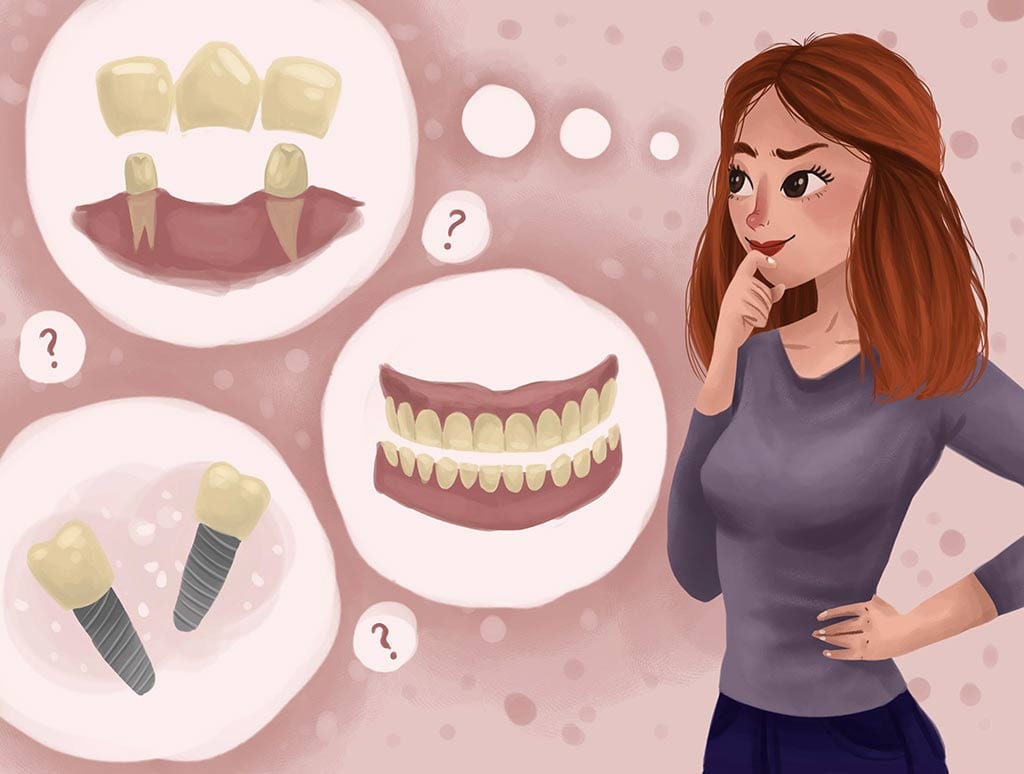
Dental implant, Dental Bridge or Denture? Which is the best for me?
The answer is that it depends. Understanding which treatment is best suited for your is highly dependant on your needs, requirements, existing oral health and general health.
If you’re interested in getting your teeth replaced, you should speak to a dental professional who will be able to access your situation and recommend the right treatment for you.
Regardless of which tooth replacement solution you chose to proceed with, you should always choose to replace your teeth as soon as possible, as any solution is better than no solution at all.
So, What’s Next?
Want to get your missing teeth replaced?
If you’re looking to get your missing teeth replaced, you should contact a reputable dental clinic to schedule a consultation with an experienced dentist to better understand your situation.
To find out more about your options, contact us via our support hotline at 9007 1085 or email us at enquiry@nofrillsdental.com or message us directly to get in touch with our dentists.
We would suggest for you to speak to one of our dentists. Our dental providers are experienced, ready to answer all your queries, and will discuss all the possible treatment options available for you.
At the end of the day, we believe that the right dentist for you is the one who will lay out all your treatment options on the table, allowing you to make informed decisions, while ensuring that your entire treatment process is as enjoyable, comfortable and hassle-free as possible.
Good communication between you and your dentist is the best way to ensure a smooth and successful treatment.
In addition, please only proceed with the treatment if you are fully comfortable with the treatment plan proposed by your provider.
Talk to Us Today!
Related Posts
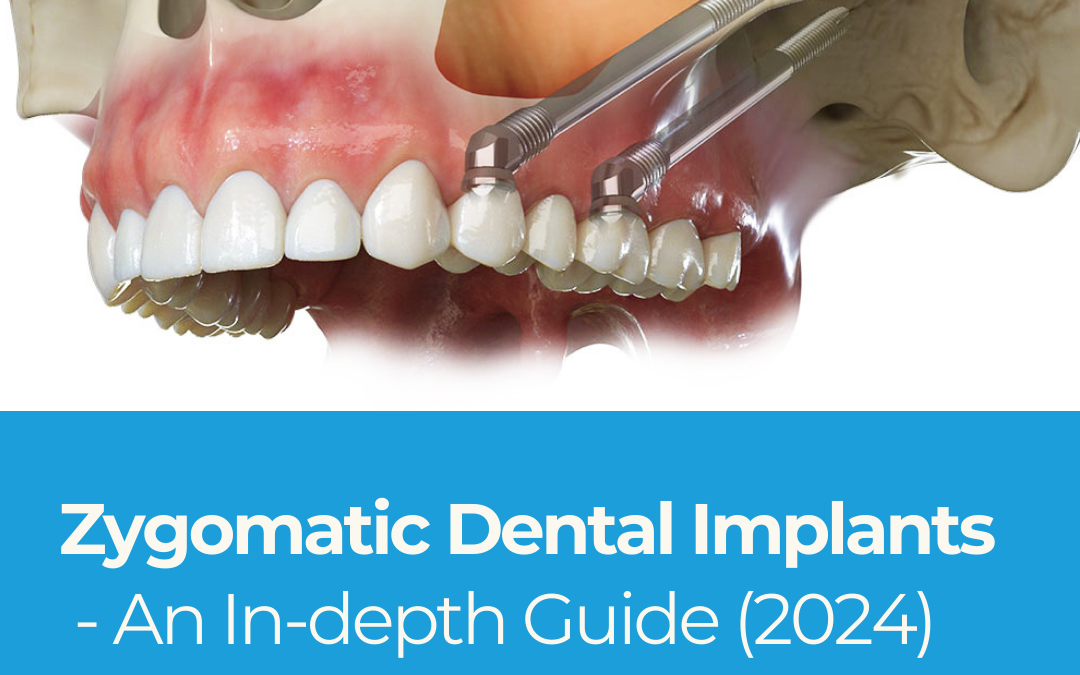
Zygomatic Dental Implants: An In-depth Guide
Zygomatic dental implants represent a revolutionary advancement in the field of dental implant surgery, providing a viable solution for individuals with insufficient bone in the upper jaw.
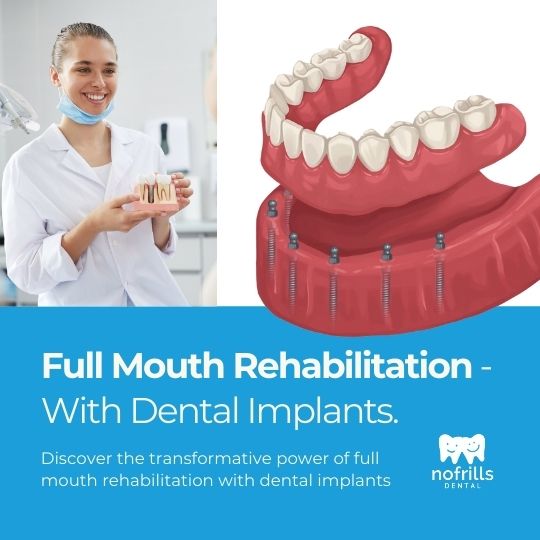
Transform Your Smile: The Guide to Full Mouth Rehabilitation with Dental Implants (2024)
Discover the path to a renewed smile and enhanced oral health through full mouth rehabilitation with dental implants—a dependable and aesthetically appealing option for those troubled by tooth loss or dissatisfaction with dentures.
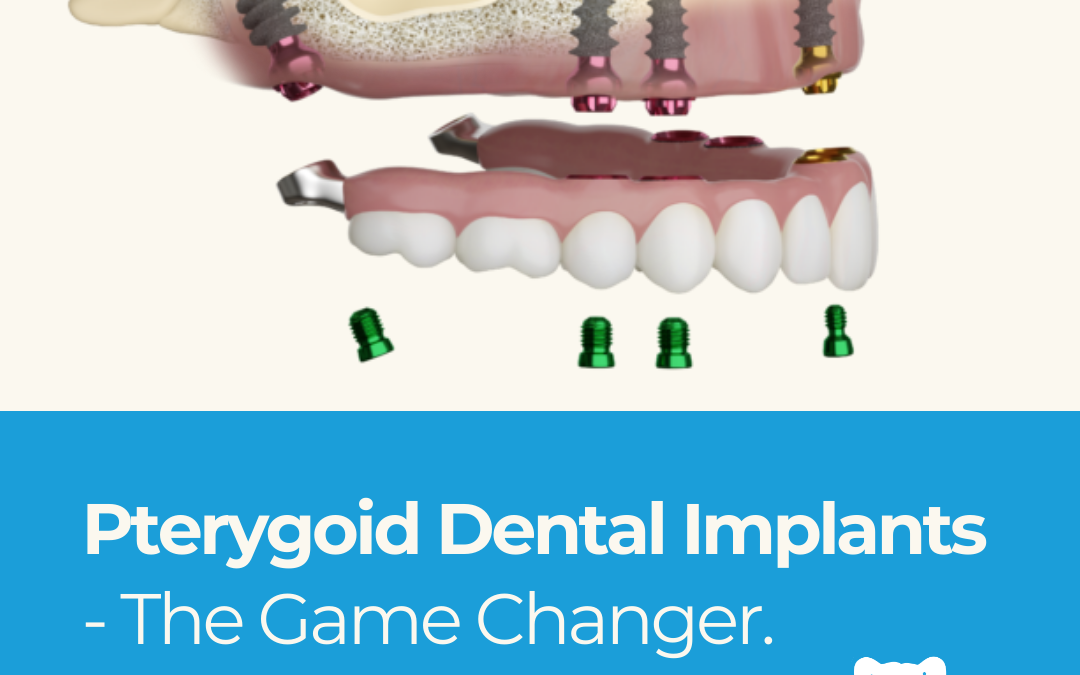
Pterygoid Dental Implants: An In-depth Guide
Dental implants have revolutionized the world of dentistry, offering solutions for patients with missing teeth. Tubero Pterygoid Dental Implants stand out due to their unique placement and advantages.
